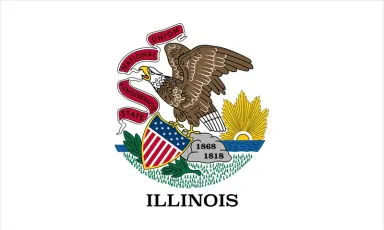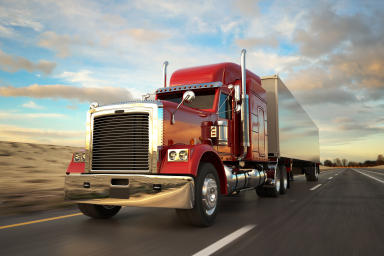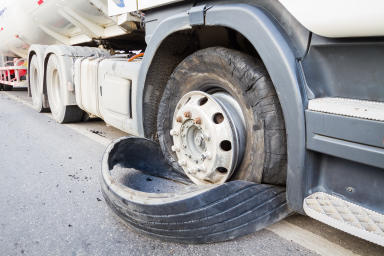Trucking Insurance: What's Covered and What Isn't

Companies that employ drivers to haul cargo face a number of operational risks. Some of those risks, such as liability in the event of an accident, can be mitigated by taking out a sound trucking insurance policy.
The dangers of accidents involving large, heavy vehicles are well documented. According to the most recent data from the Federal Motor Carrier Safety Administration (FMCSA), 4,998 large trucks and buses were involved in fatal crashes in the United States in 2020. Some 327,000 truck accidents caused property damage.
These figures help to illustrate the importance of obtaining the right trucking insurance policy for the right kind of operation. This guide looks at the various types of policies available, what they cover, how insurance companies and courts determine liability, and what policyholders can expect to pay for coverage. We’ll also provide some valuable resources for independent owner-operator truckers who need insurance or have been in an accident.
Types of Commercial Trucking Insurance
Each policy type is designed to provide different kinds of protection to drivers and trucking companies in the event of an accident involving their vehicle. Getting the right policy for the right circumstances is essential to protect drivers, businesses, and cargo.
Most policy packages begin with primary liability insurance as a foundation and then add coverage, like physical damage. Requirements will vary depending on the trucking company, job type, cargo transported, and local laws and regulations.
There are also minimum legal requirements for how much insurance is needed to operate commercial trucks. These requirements are set by the Federal Motor Carrier Safety Administration (FMCSA) and can be viewed in detail on their website.
Let’s take a look at the main types of commercial trucking insurance available.
Primary Public Liability Insurance
Primary Public Liability (PPL) Insurance is required by federal law for all truck owner-operators and individuals leasing a truck. PPL covers the full extent of any damage done to other individuals and/or their vehicle or other property.
The minimum coverage required depends on the type of cargo being hauled.
Non-hazardous freight in a truck weighing less than 10,001 pounds = $300,000
Freight moved in a truck heavier than 10,001 pounds = $750,000-$5,000,000 (depending on the type of freight - details available from FMCSA)
In some instances, there is a minimum legal requirement for other types of insurance, such as Bobtail Insurance (see below) for 18-wheelers with no trailer attached.
Monthly costs for PPL Insurance range between $750-$1500 per truck.
Physical Damage Insurance
Physical Damage insurance covers the truck and trailer in situations, including accidents, fire, and theft. Owner-operators use this to protect their own properties and employees, as opposed to PPL, which covers damage done to others.
Typical monthly costs range between $80 and $250 per truck.
Bobtail Insurance
Driving a truck without a trailer (known as ‘bobtailing’) requires separate coverage. Semi-owner-operators occasionally need to make trips without a trailer (e.g., for servicing) and are required to obtain bobtail insurance.
Similar to bobtailing, ‘deadheading’ describes driving a truck after goods have been delivered but with the empty trailer still attached. Depending on the nature of the business, some owner-operators require specific deadhead coverage. Bobtail/deadhead insurance policies typically have a limit of $1 million. Monthly costs range between $35-$60 per month.
Trailer Interchange Insurance
Trailer Interchange covers damage to a trailer not owned by the owner-operator. Damages covered include collision, loading/unloading, fire, vandalism, and theft.
Coverage only applies where there is a formal contract in place between the owner of the trailer and the company transporting it. In cases where no such contract exists, ‘Non-Owned Trailer Physical Damage’ coverage may apply.
Limits usually range between $20,000-$30,000, with policy costs running as low as $100 per year.
Uninsured Motorist Insurance
Protects truckers involved in an accident with another road user who is uninsured. In some states - such as New York - Uninsured Motorist Insurance is a legal requirement. Costs may be as low as $50 annually.
Motor Truck Cargo Insurance
Cargo insurance specifically protects damaged or stolen freight. Payouts can be used to reimburse customers.
Cargo insurance is particularly useful when hauling goods with a high monetary value. The limits usually range between $10,000 and $100,000, although policies exceeding that amount are available. It’s important to read the policy thoroughly so there are no surprises that could affect your ability to recover costs. Be aware, for example, that many insurers refuse to cover things like jewelry as they are considered high risk for theft.
Medical Payments Insurance
Covers injuries to owner-operators, their employees, and any passengers. While the first two are usually covered by Workers’ Comp, passengers are not. Coverage limits are generally less than $100,000, with monthly costs ranging from $2-$40.
General Liability Insurance
General Liability Insurance provides coverage for non-road accident issues, such as truckers delivering the wrong cargo. Most General Liability policies provide coverage up to $1 million for each incident. Monthly costs range from $700-$1200.
What Isn’t Covered by Commercial Truck Insurance?
Most commercial truck insurance policies typically cover damages to the truck, injuries to the driver and passengers, and liability for damages or injuries caused to others in the event of an accident.
However, basic insurance policies may not cover certain types of damages or losses, such as those resulting from criminal acts, war, or natural disasters. Some policies may not cover damages caused by the driver if they were under the influence of drugs or alcohol, or were unlicensed.
It is important to read the policy carefully and consult with an insurance agent to understand all of the exclusions In PPL coverage, common exclusions include:
Driver Error
Damage or loss resulting from driver error is not usually covered by PPL insurance.
This may include damage or loss caused by the truckers:
Use of drugs or alcohol
Violation of traffic laws
Failure to maintain a vehicle or report maintenance issues
Failure to hold the proper license or permit
Loss of Income
PPL insurance may not cover loss of income. Owner-operators may consider business interruption or business income insurance to cover such losses.
Driver Injury
Unless a trucking company has MedPay coverage, injuries to the driver may not be covered. A comprehensive Workers’ Comp policy should protect workers from any financial burden incurred after a driving accident.
Damage to Trucks
Basic liability coverage typically protects third-party vehicles and excludes damage done to the business’s fleet. In these instances, Physical Damage coverage (see above) provides protection.
Acts of God
This category includes earthquakes, floods, and other natural disasters. The same principle often applies to damage or loss caused by war, civil unrest, or acts of terrorism.
How Truck Insurance Companies Determine Liability
Insurance companies determine liability based on the principle of negligence or a failure to exercise a reasonable ‘duty of care.’
Negligence can be determined through eyewitness accounts, accident reports, citations given at the scene of an accident, and traffic violations occurring before or during the accident.
Truck accidents often involve several potentially liable parties. Liability may lie with one or any combination of the following parties:
The Truck Manufacturer
Truck manufacturers might be liable if they produced a defective part that contributed to or caused the accident.
The Loading Company
If falling cargo contributes to an accident, it could be the fault of the loading company. If the loading company overloads a truck and fails to inspect or secure the cargo properly, they may be held liable.
The Maintenance Company
Maintenance companies may be liable if they fail to fix damaged or defective parts. This type of liability is often shared with the trucking company (see above).
The Trucking Company
The company could be liable if it employed an unqualified driver, failed to maintain or inspect the equipment, imposed unrealistic workloads or deadlines, or provided faulty equipment.
The Truck Driver
Driver error includes distracted driving, driving under the influence, failing to take proper breaks, and driving while fatigued. Drivers can also be held responsible if they break the law during the course of their duties or fail to report or resolve a technical problem of which they are aware.
Insurance claims made against trucking companies and drivers often involve a violation of federal rules governing the operation of Commercial Motor Vehicles (CMVs). All CMV operators must hold a Commercial Driver’s License (CDL) and abide by the rules - or risk losing their CDL.
Disqualifications can be issued for criminal offenses as well as traffic violations, which is why it’s so important for trucking companies to be diligent about running thorough background checks during the hiring process.
If a driver has two serious violations within a 3-year period, they may be disqualified for 60 days. If there are three serious violations, the disqualification period may double.
‘Serious violations’ noted by the federal government are:
Excessive speeding (15 mph or more above the posted limit)
Reckless driving
Improper or erratic lane changes
Following a vehicle too closely
Violating state or local law relating to motor vehicle traffic control arising in connection with a fatal accident
Driving a CMV without obtaining a CDL
Driving a CMV without a CDL in the driver’s possession
Driving a CMV without the proper class of CDL and/or endorsements
Texting OR using a hand-held mobile telephone while operating a CMV
If a driver is convicted of a major violation, their CDL will be disqualified for one year for the first offense (three years if carrying hazardous materials). A second major violation will result in a lifetime disqualification.
‘Major violations’ noted by the federal government are:
Operating a motor vehicle under the influence of alcohol
Operating a motor vehicle under the influence of a controlled substance
Refusal to take an alcohol test
Leaving the scene of an accident
Using a motor vehicle to commit a felony (not a traffic offense)
Causing a fatality through negligent operation of a CMV
Driving a CMV when as a result of prior violations committed while operating a CMV, the driver’s license is revoked, suspended
disqualified, canceled, denied, barred, or withdrawn
Using a vehicle in the commission of a felony involving controlled substances
Many factors contribute to truck accidents. Partial fault is determined according to the principles of negligence. While these principles are found across the country, details vary between states. Liability ultimately rests on the specific circumstances of the accident and the shared fault laws of the state where the accident took place.
Resources for Truckers
Identifying the appropriate type and level of insurance for your trucking business can save you thousands of dollars every year. To help your search for the right policy package, here are some of the most valuable resources for owner-operators in the United States today.
American Driver Network
American Driver Network bills itself as a ‘one-stop resource for information on truck driving, trucking schools, trucking companies, and all types of trucking industry resources.’
The site connects recruiters with drivers through their network of ‘hundreds of Carrier Companies… looking for Local, Regional, and Over-the-Road drivers.’
Start your search for driving jobs.
Federal Rules and Regulations
Frequently Asked Questions
What is the average monthly cost of commercial truck insurance?
The average monthly cost of insurance varies widely depending on the type of coverage, location, the value of the truck, and owner-operator status. For example, owner-operators newly under their own authority may find higher prices. Other factors, such as credit scores, routes, and cargo type, can impact the cost. Payment plans can also play a role, with yearly plans typically less expensive than monthly plans.
According to research conducted by TruckingInsurance.org, the average monthly cost of semi-truck insurance for established owner-operators ranges from $750 to $1250 per truck. For owner-operators newly operating under their own authority, that range increases to $1000-$1500.
Does my truck insurance cover my trailer?
Trailers are typically covered by the ‘Physical Damage’ part of a policy package. Trailers not owned or leased by the company can be covered by ‘Trailer Interchange’ protection. This type of policy provides Physical Damage insurance for trailers that sustain damage from explosion, theft, fire, and vandalism.
Which state has the cheapest commercial truck insurance?
Mississippi consistently offers the lowest rates for semi-truck insurance. Nebraska, Montana, Idaho, and Iowa are also known for having less expensive insurance compared to other states.
What is non-trucking liability insurance?
Non-trucking liability insurance covers drivers when they are using their vehicle for purposes other than hauling freight, such as taking it for a service or a wash.
How much does box truck insurance cost?
An established business that has operated for 3+ years without an accident can expect to pay between $3000 and $5000 per year for box truck liability insurance. A history of accidents and/or traffic violations could significantly increase costs.
How much is dump truck insurance?
As with other types of coverage, the cost of dump truck insurance depends on a variety of factors. Owner-operators can expect to pay between $2000-$8000 per year for a single commercial dump truck, although larger trucks can be significantly more expensive, with some policies costing upwards of $14,000.
How much is insurance for a food truck?
Basic general liability coverage for food trucks starts at around $40 per month. Adding product liability takes the average cost to $100, and commercial insurance can bring the total monthly cost to between $150-$300 per month.
What is motor truck cargo insurance?
Motor truck cargo insurance covers property and goods while they are being transported. Businesses that use trucking companies to ship goods will typically require this type of coverage.
Is trucking insurance more expensive than regular car insurance?
Yes, considerably so.
Do I need insurance to rent a moving truck?
Yes. In most cases, personal auto insurance policies won’t cover moving trucks or vans, and a separate policy must be taken out. Many moving truck rental companies - including U-Haul - offer insurance bundles.
Does State Farm insure commercial semi-trucks?
Yes. It was recently awarded Investopedia’s ‘Best Customer Service’ among commercial truck insurance companies.
Does USAA offer commercial truck insurance?
Yes. USAA offers commercial insurance for large trucks and fleet vehicles.
Expertise.com StaffAuthor
Step into the world of Expertise.com, your go-to hub for credible insights. We don't take accuracy lightly around here. Our squad of expert reviewers, each a maestro in their field, has given the green light to every single article you'll find. From rigorous fact-checking to meticulous evaluations of service providers, we've got it all covered. So feel free to dive in and explore. The information you'll uncover has been stamped with the seal of approval by our top-notch experts.

Ryan Zehl, Truck Accident LawyerReviewer
Ryan Zehl is one of the country’s most accomplished trial lawyers, with a winning track record that has gained him national media acclaim and the esteem of the legal field. He is an advocate for the catastrophically injured and those who have met tragic deaths due to the negligence of others. As founder of the firm Zehl & Associates, he leads an undefeated personal injury law firm that has recovered billions of dollars in due compensation for accident victims across Texas and the United States. Ryan Zehl holds the record for securing the largest truck accident settlement in Texas at $23.5 million—a recent achievement in a long case history of record-setting settlements and verdicts.




